|
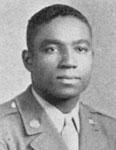 Dr. Eugene W. Adams, K-State DVM class of 1944 Dr. Eugene W. Adams, K-State DVM class of 1944
Dr. Eugene W. Adams became a part of the Tuskegee faculty in 1947. His first teaching assignment was in the Department of Large Animal Medicine and Surgery. In 1948 he transferred to the Department of Physiology and Pharmacology to assist Dr. Bowie in teaching the courses offered by the department. Following his appointment as department head in 1955, he was granted educational leave to enter the graduate program at Cornell University. After completing his graduate work, Dr. Adams returned to Tuskegee as head of the Department of Pathology and Parasitology and introduced the “case method” in the teaching of pathology in which students began to early associate pathologic anatomy with abnormal physiology. Dr. Adams served as associate dean until the summer of 1983 when he was appointed vice provost and director, international programs for Tuskegee University.
|
|
Dr. Raliegh H. Allen Jr., Tuskegee DVM class of 1956
Dr. Raliegh Howard Allen Jr. was the first African American to pass the three-day certification examination and be licensed as a Veterinarian in the state of Florida. He was also the first African American Veterinarian in the state of Florida.
|
|
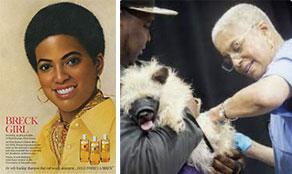 Dr. Donna Alexander, University of Pennsylvania VMD class of 1982 Dr. Donna Alexander, University of Pennsylvania VMD class of 1982
At 17, she had been a “Breck Girl” — part of the famed ad campaign touting Breck shampoo that also featured women including Christie Brinkley, Kim Basinger, Brooke Shields, Cybill Shepherd, Cheryl Tiegs and Jaclyn Smith. Dr. Alexander was one of the first African-American “Breck Girls.” Dr. Donna Alexander served as the administrator for Cook County (Illinois) Animal & Rabies Control and ran the Cook County Animal and Rabies Control Environmental Task Force. In addition to the Environmental Task Force, Dr. Alexander was also a key partner in the 20-year Urban Coyote Research Project. Cook County Animal & Rabies Control provides support for the study due to their interest in disease monitoring and wildlife-to-domestic animal interactions.
|
|
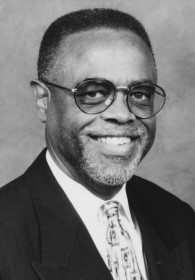 Dr. Alfonza Atkinson, Tuskegee University DVM class of 1973 Dr. Alfonza Atkinson, Tuskegee University DVM class of 1973
Dr. Atkinson was a three-time graduate of Tuskegee University, earning a BS in biology in 1967, a BS in agriculture in 1971, and the Doctor of Veterinary Medicine degree in 1973. Dr. Atkinson was dean of the Tuskegee University College of Veterinary Medicine in 1999. Dr. Atkinson presided as principal investigator over the college’s multi-million-dollar Centers of Excellence in Minority Medical Education Grant. From 1997 through 2004, the veterinary medical school received $21.9 million to help underrepresented minorities prepare for veterinary medical careers.
|
|
 Dr. Wendell O. Belfield, Tuskegee DVM class of 1954 Dr. Wendell O. Belfield, Tuskegee DVM class of 1954
Dr. Wendall O. Belfield owned and operated the first veterinary hospital to practice orthomolecular medicine. Dr. Belfield also used large doses sodium ascorbate therapy to treat high fevers and distemper. The dose level was begun at one-half gram twice daily per pound of body weight administered intravenously. With dosages this high, Dr. Belfield uses the sodium ascorbate form of Vitamin C as opposed to the ascorbic acid form. The intravenous preparations used were made from crystals to avoid sodium bisulphate, a preservative in the commercially available intravenous products, which can cause nerve problems when given at high dosages. He published his first professional paper with results in 1967. Dr. Belfield and his colleagues are challenging traditional veterinary practices. They are introducing completely new methods of overcoming diseases. These methods are controversial and many scientists question the validity of these practices.
|
|
 Dr. Debbye Turner Bell, Missouri DVM class of 1991 Dr. Debbye Turner Bell, Missouri DVM class of 1991
Dr. Turner Bell graduated from the University of Missouri-Columbia in May 1991 with a Doctor of Veterinary Medicine degree. She earned a Bachelor of Science degree in agriculture in May 1986 from Arkansas State University. Dr. Turner Bell was crowned Miss America in 1990. Since 2001, Dr. Turner Bell has been a broadcast journalist contributor to the CBS television program "The Early Show." Her "Life Matters" (formerly known as, "Yikes, I’m a Grown Up!") segment offers perspectives on the pleasures and perils of being an adult. She has also appeared on Pet Planet, the Early Show, Saturday Early Show, Show Me St. Louis, and she has hosted "The Gentle Doctor."
|
|
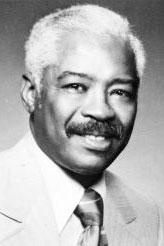 Dr. Iverson Bell Sr., Michigan State University DVM class of 1949 Dr. Iverson Bell Sr., Michigan State University DVM class of 1949
Dr. Iverson Bell began his undergraduate education at Kansas City Junior College and then continued at Kansas State University. His education was interrupted by service in the US Army during World War II. After the war, with the help of the GI Bill, he continued his college career at Wayne State University in Detroit before transferring to Michigan State University, where he earned his DVM in 1949. In addition to spending more than 30 years working as a veterinarian and a civic leader for the city of Terre Haute, Indiana, Dr. Bell became the first black person to serve as vice president of the AVMA, serving from 1971 to 1973.
|
|
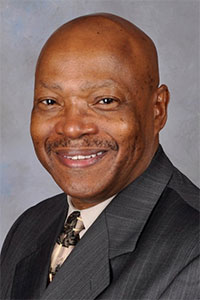 Dr. Michael Blackwell, Tuskegee DVM class of 1975 Dr. Michael Blackwell, Tuskegee DVM class of 1975
Dr. Michael Blackwell graduated from Tuskegee University with a Bachelor's Degree in 1973 and DVM in 1975 followed by a Master's in Public Health in 1981 from Loma Linda University and Certification in Epidemiology from the US Public Health Service. Dr. Blackwell spent several years in private practice in Oklahoma prior to joining the FDA’s Center for Veterinary Medicine in 1977. In February 1999, he was named Chief of Staff, Office of the Surgeon General. In 2000, following a 23 year career in public health in which he attained the rank of Assistant Surgeon General of the US Public Health Service, he was appointed dean of the University Of Tennessee College Of Veterinary Medicine.
|
|
 Dr. Walter C. Bowie, K-State DVM class of February 1947 Dr. Walter C. Bowie, K-State DVM class of February 1947
Dr. Walter C. Bowie was appointed head of the Department of Physiology and Pharmacology at Tuskegee University in 1947. In 1964, he was elected president of the American Association of Veterinary Physiologists and Pharmacologists. Dr. Bowie collaborated with Dr. Hawthorne, liaison to establish a Large Animal Cardiovascular Center in the veterinary school in 1964. The center was funded by the National Institutes of Health and brought to the campus a number of the leading cardiovascular specialists and scientists in related disciplines to participate in studies on the movement of the mitral valve and to perform surgical procedures in open-heart surgery on the horse. Dr. Bowie earned a D.V.M. degree from Kansas State in 1947. In 1972 he was named dean of Tuskegee University’s School of Veterinary Medicine.
|
|
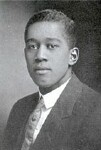 Dr. John Brown, K-State DVM class of 1912 Dr. John Brown, K-State DVM class of 1912
Dr. John Brown was the first black veterinarian to earn his DVM degree at Kansas State. Dr. Brown was head of the Division of Agricultural Instruction at the Tuskegee Institute in Tuskegee, Alabama, during 1912 and 1913. He served in the U.S. Army as a first lieutenant.
|
|
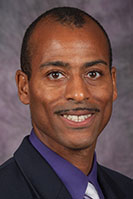 Dr. Kimathi Choma, K-State DVM class of 2007 Dr. Kimathi Choma, K-State DVM class of 2007
Dr. Kimathi Choma was named asistant dean of diversity, recruitment and retention in the Kansas State University College of Arts & Sciences in March 2016, after serving as interim dean for a year and a half. Prior to his current role, Dr. Choma was in K-State College of Veterinary Medicine where he had been the director of undergraduate public health programs for Pathways to Public Health and the Master of Public Health (MPH) field experience facilitator for six years.
|
|
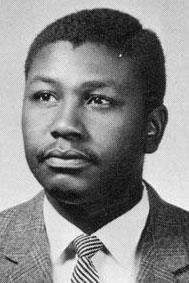 Dr. James Courtney, Texas A&M DVM class of 1970 Dr. James Courtney, Texas A&M DVM class of 1970
Dr. James Courtney was the first African-American to receive an undergraduate degree form Texas A&M and in 1970 he was also the first to receive a DVM degree from Texas A&M. After graduation Dr. Courtney went into private practice as a veterinarian in Compton, CA. He later joined the USDA’s Meat and Poultry Inspection program as inspector in charge. He became FSIS circuit supervisor in Kansas City, assistant area supervisor in Albany, N.Y., and Baton Rouge, La; and area supervisor in Jefferson City, Mo. He was named district manager for the newly created district of Dallas In 1997.
|
|
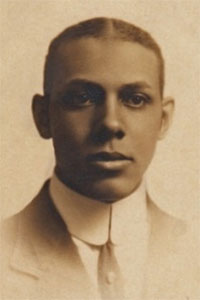 Dr. Kirksey Curd, Cornell DVM class of 1912 Dr. Kirksey Curd, Cornell DVM class of 1912
Dr. Kirksey Curd was born in Kentucky and was Cornell's first African American veterinary graduate. After receiving his DVM. in 1912, he entered medical school at the University of Pennsylvania and spent the remainder of his professional career as a practicing physician at the Frederick Douglass Memorial Hospital in Philadelphia.
|
|
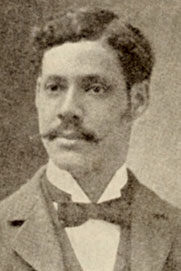 Dr. Thomas Madison Doram, McKillip Veterinary College MDV class of 1899 Dr. Thomas Madison Doram, McKillip Veterinary College MDV class of 1899
Dr. Thomas Madison Doram, the first degreed African American veterinarian in Kentucky, was an 1899 graduate of McKillip Veterinary College in Chicago. He opened his first clinic in Evanston, Illinois, where he was enumerated in the 1900 U.S. Census. By 1907, he had moved his veterinary clinic to Danville. Dr. Doram had been a practicing veterinarian in Kentucky for several years, and just prior to the human influenza/pneumonia pandemic of 1918-1919 he alerted the public that not only can humans be diagnosed with pneumonia and influenza, but both can afflict horses. Several horses in the Danville region had died from the illnesses in 1916. Dr. Doram had diagnosed the Jesse Lynn mare with influenza in 1913.
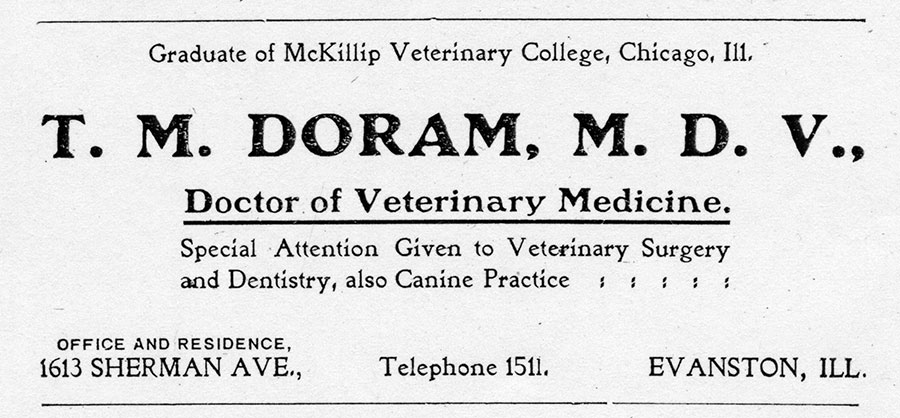
|
|
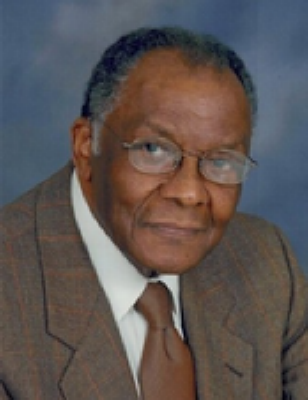 Dr. Roger D. Estep, Tuskegee DVM class of 1962 Dr. Roger D. Estep, Tuskegee DVM class of 1962
Dr. Roger D. Estep earned a Doctor of Veterinary Medicine from Tuskegee Institute in 1962. Dr. Estep served as an Instructor of Poultry Husbandry at Pennsylvania State College from 1957 to 1958. In 1970, he became executive assistant to the vice president for health affairs at Howard University and in 1971, executive assistant to the president. Since 1967, he has been a member of the Board of Directors of the American Association for Laboratory Animal Science and of its Executive Committee. He serves or has served on several federal councils or committees, including the Intergovernmental Ad Hoc Committee of the National Academy of Sciences.
|
|
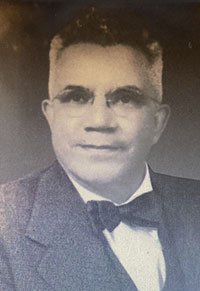 Dr. E.B. Evans, Iowa State University DVM class of 1918 Dr. E.B. Evans, Iowa State University DVM class of 1918
Dr. Edward B. Evans II was the first dean of Tuskegee Institute. He was also the college veterinarian and director of the Department of Agriculture at Prairie View College, Texas. Dr. Evans recruited the first eight veterinary college faculty members to Tuskegee in 1945. Out of the eight faculty members three were graduates from the Kansas State College of Veterinary Medicine: Drs. Thomas G. Perry (KSC 1921), Theodore S. Williams (KSC 1935), Lloyd B. Mobiley (KSC 1938), Eugene W. Adams (KSC 1944), Raymond C. Williams (KSC 1946), Walter C. Bowie (KSC 1947), and Earl H. Brown (KSC 1947). Thomas G. Perry (KSC 1921).
|
|
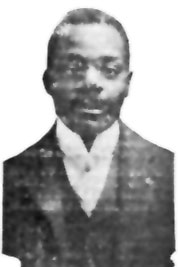 Dr. Robert F. Harper, Indiana Veterinary College DVM class of 1897 Dr. Robert F. Harper, Indiana Veterinary College DVM class of 1897
Dr. Robert Harper practiced in Indianapolis, was the city veterinary surgeon and was a member of the Indianapolis Veterinary Medical Association.
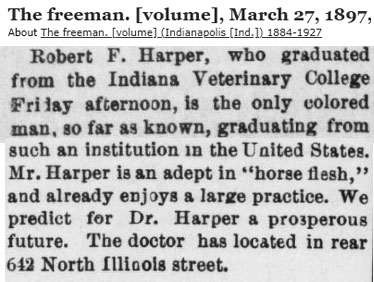
|
|
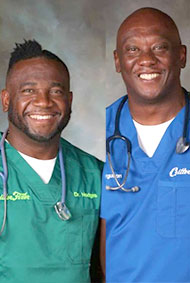 Drs. Vernard Hodges and Terrence Ferguson, Tuskegee DVM classes of 1997 and 1994, respectively, aka "Critter Fixers: Country Vets" on Nat Geo Wild Drs. Vernard Hodges and Terrence Ferguson, Tuskegee DVM classes of 1997 and 1994, respectively, aka "Critter Fixers: Country Vets" on Nat Geo Wild
In Georgia, Critter Fixers: Country Vets’ Dr. Terrence Ferguson and Dr. Vernard Hodges are breaking down barriers and fixing critters with heart and humor as two of only 2% of black veterinarians in the United States.
|
|
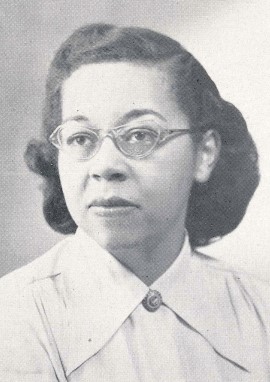 Dr. Jane Hinton, PennVet VMD class of 1949 Dr. Jane Hinton, PennVet VMD class of 1949
Dr. Jane Hinton was a pioneer in the study of bacterial antibiotic resistance and one of the first two African American women to gain the degree of Doctor of Veterinary Medicine. After World War II ended, she decided to be a veterinarian and enrolled in the School of Veterinary Medicine at the University of Pennsylvania where she graduated in 1949. Hinton worked as a small animal veterinarian in Canton, Massachusetts, until 1955, and later that same year, joined the Department of Agriculture as a federal government inspector involved in research and response to outbreaks of disease in livestock.
|
|
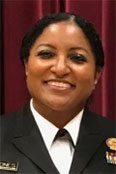 Dr. Estella Jones, LSU DVM class of 1989 Dr. Estella Jones, LSU DVM class of 1989
As Deputy Director of the Office of Counterterrorism and Emerging Threats, Office of the Chief Scientist, Office of the Commissioner at FDA, Rear Admiral (RADM) Estella Z. Jones provides strategic and executive direction on programs that continually combat global health threats. She safeguards the development and availability of critical medical countermeasures to mitigate and respond to public health emergencies involving chemical, biological, radiological, nuclear, and emerging infectious disease threats, such as Ebola virus outbreaks, pandemic influenza, Zika virus and SARS.
|
|
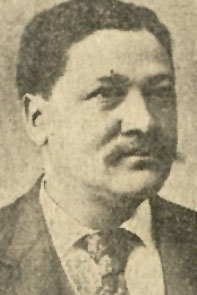 Dr. Henry Stockton Lewis, Harvard MDV class of 1889 Dr. Henry Stockton Lewis, Harvard MDV class of 1889
Dr. Henry Stockton Lewis graduated from the Harvard School of Veterinary Medicine in 1889, becoming the first Black man to graduate from a U.S. veterinary college. He went into private practice in Chelsea, Massachusetts, and served on the first veterinary registration board and served as treasurer and secretary of the Massachusetts Veterinary Association.
|
|
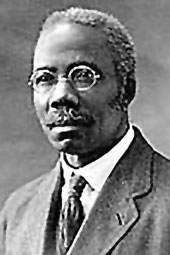 Dr. Augustus Nathaniel Lushington, University of Pennsylvania VMD class 1897 Dr. Augustus Nathaniel Lushington, University of Pennsylvania VMD class 1897
Augustus Nathaniel Lushington was the first American of African descent to earn a VMD degree from the University of Pennsylvania School of Veterinary Medicine (then known as the Veterinary Department at the University of Pennsylvania) in 1897. Dr. Lushington taught at the Agricultural College in Rock Castle, Virginia, and he later set up a veterinary practice in Lynchburg, Virginia. He worked on the side as an agricultural statistics reporter for the USDA’s Bureau of Animal industry, as a meat inspector, and even as a probation officer on weekends.
|
|
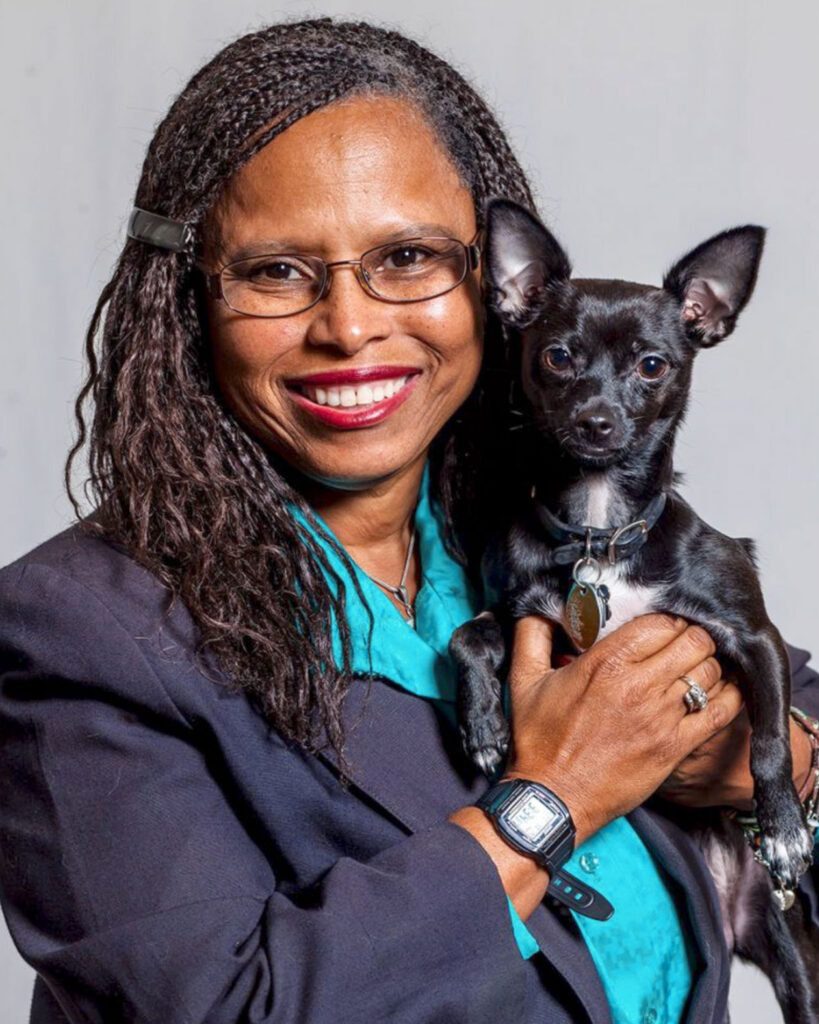 Dr. Lila Miller, Cornell DVM class of 1977 Dr. Lila Miller, Cornell DVM class of 1977
Dr. Lila Miller graduated from Cornell University with a DVM and BS in Animal Science. She is currently Veterinary Advisor and a Vice President of the American Society for the Prevention of Cruelty to Animal. Dr. Miller has over 25 years experience working in the field of shelter medicine. She is the coeditor of the textbook, Shelter Medicine for Veterinarians and Staff and a contributing author to the publication, "Recognizing and Reporting Animal Abuse, a Veterinarian’s Guide."
|
|
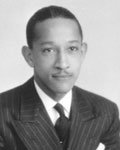 Dr. Lloyd B. Mobiley, K-State DVM class of 1938 Dr. Lloyd B. Mobiley, K-State DVM class of 1938
Dr. Lloyd B. Mobiley served in the Federal Meat Inspection Service and was an officer in the U.S. Army Veterinary Corps during World War II. He was appointed head of the Department of Anatomy at Tuskegee. One of Dr. Mobiley's greatest contributions was to introduce the use of the intramedullary pin and other devices in the repair of long-bone fractures.
|
|
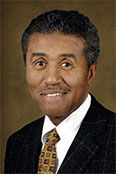 Dr. Evan Morse, Tuskegee DVM class of 1968 Dr. Evan Morse, Tuskegee DVM class of 1968
Dr. Evan Morse graduated form Tuskegee University and was one of the first African-American veterinarians in Ohio. Dr. Morse has owned and operated the Warrenville Animal Hospital in Cleveland, Ohio since 1972. In 1974, he co-founded the Free Animal Clinic of Cleveland. Dr. Morse has been actively involved in many of the major cultural and civic organizations in Greater Cleveland. He was recently featured in the national PBS series, Nature. In 2004 Dr. Morse was awarded the Distinguished Service Award by the Ohio Veterinary Medical Association. Dr. Morse is presently a candidate for the Master’s Degree in Diversity Management at Cleveland State University.
|
|
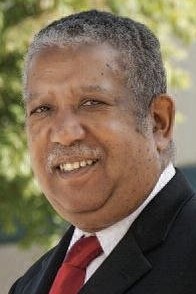 Dr. Phillip Nelson, Tuskegee DVM class of 1979 Dr. Phillip Nelson, Tuskegee DVM class of 1979
Dr. Phillip Nelson graduated from Tuskegee University in 1979 receiving his DVM degree. Dr. Nelson was Head of the Department of Small Animal Medicine and Surgery at Tuskegee University’s School of Veterinary Medicine. In 1994, he was selected as Associate Dean for the College of Veterinary Medicine at Mississippi State University. He is presently the Executive Associate Dean for the Pre-clinical Program at the Western University’s College of Veterinary Medicine in Pomona, California.
|
|
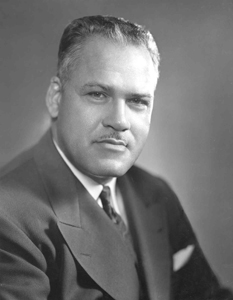 Dr. Frederick Douglass Patterson, Iowa State University DVM class of 1923 Dr. Frederick Douglass Patterson, Iowa State University DVM class of 1923
Dr. Frederick Doughlass Patterson, a young man who overcame the odds and inspired others to do the same, received three advanced degrees. He earned the Doctorate of Veterinary Medicine and the Master of Science from Iowa State University, and the Doctorate of Philosophy from Cornell University. Dr. Patterson was selected as the third president of Tuskegee University and was also selected as department head. Under his tenure, the veterinary program reached such outstanding quality that the state of Alabama granted funds for white students to study veterinary science there, a unique occurrence in the segregated South. A year before his death on June 23, 1987 Ronald Reagan awarded Dr. Patterson with the nation’s highest civilian honor, the Presidential Medal of Freedom.
|
|
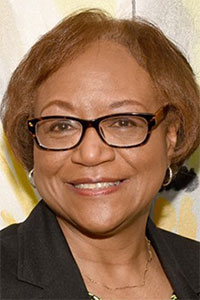 Dr. Ruby Perry, Tuskegee DVM class of 1977 Dr. Ruby Perry, Tuskegee DVM class of 1977
Dr. Ruby L. Perry is dean of the Tuskegee University College of Veterinary Medicine and the first female to serve in that role. At Tuskegee since 2007, she has served as a faculty member, Acting Chair of the Department of Small Animal Medicine, Surgery and Radiology, Interim Chief of Staff in the Office of the President, Associate Dean for Academic Affairs, and Vice-Provost of Undergraduate Education. She is a two-term president of the Tuskegee Veterinary Medical Alumni Association and the first African American female, board-certified veterinary radiologist in the American College of Veterinary Radiology (ACVR). She had also served as president of the AAVMC.
|
|
 Dr. Thomas G. Perry, K-State DVM class of 1921 Dr. Thomas G. Perry, K-State DVM class of 1921
Dr. Thomas G. Perry practiced in Wichita, Kansas, for twenty-four years and was recognized as one of the leading small animal practitioners in the state.
|
|
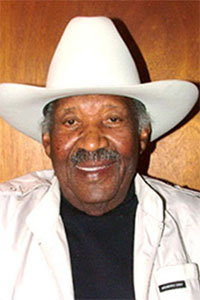 Dr. Alfred N. Poindexter Jr., K-State DVM class of 1945 Dr. Alfred N. Poindexter Jr., K-State DVM class of 1945
Dr. Alfred N. Poindexter, Jr., taught and mentored thousands of students in the College of Agriculture and Human Sciences at Prairie View A&M University. Called “Doc” by students, colleagues, clients, friends, and neighbors, “Doc” Poindexter also treated and healed tens of thousands of horses, cows, swine, and other farm animals as well as beloved family pets during the six decades he practiced at the Veterinary Hospital. In 2004, he was identified as the oldest practicing African-American veterinarian in the United States. In 1992, the Texas A&M University System Board of Regents approved the naming of “Alfred N. Poindexter Veterinary Hospital.” In 1996, he was presented with the George Washington Carver Public Service Hall of Fame Award.
|
|
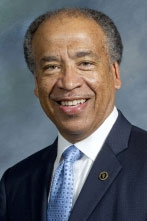 Dr. Willie Reed, Tuskegee DVM class of 1978 Dr. Willie Reed, Tuskegee DVM class of 1978
Dr. Willie Reed has held many leadership positions in veterinary medical organizations, including serving as AAVMC president, where he focused on increasing diversity in veterinary medicine. In September 2014, Purdue began offering online certificate programs in diversity and inclusion for veterinarians, veterinary technicians, educators and students through the Center of Excellence for Diversity and Inclusion in Veterinary Medicine. The center was developed by Purdue's College of Veterinary Medicine in partnership with the AAVMC and the American Veterinary Medical Association. In 2011, he also received the AAVMC’s Iverson Bell Award.
|
|
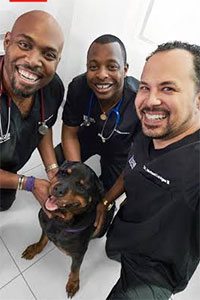 Drs. Aubrey Ross, Diarra Blue and Michael Lavigne III, Tuskegee DVM class of 2007, 2009 and 2007, respectively, stars of "The Vet Life" on Animal Planet Drs. Aubrey Ross, Diarra Blue and Michael Lavigne III, Tuskegee DVM class of 2007, 2009 and 2007, respectively, stars of "The Vet Life" on Animal Planet
The Vet Life cast consists of three passionate vets who went to college together. The series revolves around the lives of these three men who decided to start a practice together after college. The show captures the daily lives of the three vets, their spouses, families, and other relations.
|
|
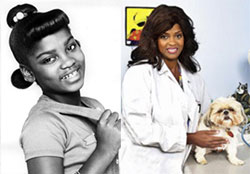 Dr. Danielle Spencer, Tuskegee DVM class of 1993 Dr. Danielle Spencer, Tuskegee DVM class of 1993
Dr. Danielle Spencer, who earned her doctorate in veterinary medicine from Tuskegee in 1993, is well-known for her role as the bratty little sister Dee Thomas on the ABC sitcom “What’s Happening," which ran from 1976 to 1979. Dr. Spencer had been working as a veterinarian for more than 10 years when a diagnosis of spinal stenosis — resulting from a childhood car accident she and her family experienced in 1977 — required her to take a break from her veterinary medicine career. After 25 years as a practicing veterinarian in California, Dr. Spencer relocated to Richmond, Virginia, and continues to practice and makes appearances on WTVR CBS 6’ “Virginia This Morning,” in addition to serving as a motivational speaker. In 2014, she was inducted into the Smithsonian’s new National Museum of African American History and Culture in Washington, D.C. She is the only child actor who holds that honor. She has acted occasionally since her days as Dee Thomas, with her on-screen appearances including portraying a veterinarian in the 1997 hit film “As Good as It Gets,” as well as appearing in “Peter Rabbit and the Crucifix” in 2001.
|
|
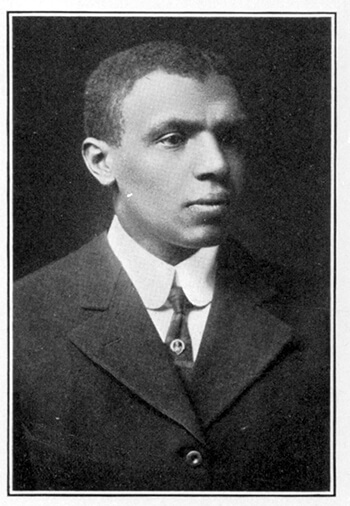 Dr. John Baxter Taylor Jr., PennVet VMD class of 1908 Dr. John Baxter Taylor Jr., PennVet VMD class of 1908
Dr. John Baxter Taylor Jr. was the first black VMD graduate at the University of Pennsylvania. He was also an athlete and was a member of America’s gold-medal-winning 1600-meter (one mile) relay team in the 1908 Olympics held in London, England. He was the first Black American to win an Olympic gold medal. Unfortunately, Dr. Taylor had only a few months in which to enjoy his successes as a veterinary student and as an Olympian. He died of typhoid pneumonia on Dec. 2, 1908.
|
|
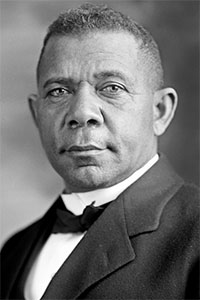 Dr. Booker T. Washington, founder of Tuskegee Institute Dr. Booker T. Washington, founder of Tuskegee Institute
While not a veterinarian, Dr. Washington founded Tuskegee Institute in 1881. At the time there were no buildings or space appropriated for the purpose of the school. However, with a loan from Hampton Institute, Dr. Washington was able to purchase an abandoned plantation of about 100 acres that served for years as the central point of the school.
The Tuskegee School of Veterinary Medicine was founded in 1945 by Drs. Frederick Douglass Patterson and Edward B. Evans II. The school has been an accredited program since 1949 by the Council on Education of the American Veterinary Medical Association. Tuskegee is the only HBCU that offers a doctorate degree in the field of study. In 1949 the first group of students graduated from the university with their Doctor of Veterinary Medicine degrees. Since then the school has gone on to produce approximately 75% of active African American Veterinarians in the country.
|
|
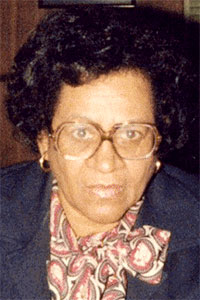 Dr. Alfreda Johnson Webb, Tuskegee DVM class of 1949 Dr. Alfreda Johnson Webb, Tuskegee DVM class of 1949
Dr. Alfreda Johnson Webb was the first female graduate from Tuskegee, and the first African American woman to graduate from any school of veterinary medicine in the United States and the first Black woman licensed to practice veterinary medicine in the United States. She then served as a professor of biology at North Carolina Agricultural and Technical State University (NC A&T) from 1959 to1978. During her time at NC A&T, she was a member of the planning committee which founded the School of Veterinary Medicine of North Carolina State University.
|
|
 Dr. Raymond C. Williams, K-State DVM class of 1946 Dr. Raymond C. Williams, K-State DVM class of 1946
Dr. Raymond C. Williams was department head in the College of Veterinary Medicine at Tuskegee University in 1950 and was selected to be an assistant veterinarian by the United Nations Relief and Rehabilitation Agency. He spent the summer aboard ship administering health care to some seven hundred head of livestock on a transoceanic voyage to Poland.
|
|
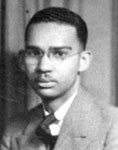 Dr. Theodore S. Williams, K-State DVM class of 1935 Dr. Theodore S. Williams, K-State DVM class of 1935
Dr. Williams began his veterinary medical career in private practice in Kansas City, Kansas and served on the faculty at Prairie View College, Texas, as assistant veterinarian. He was employed by the Federal Meat Inspection Service, United States Department of Agriculture in Des Moines, Iowa. He was also appointed head of the Department of Pathology and Parasitology at Tuskegee.
|
 Dr. Eugene W. Adams, K-State DVM class of 1944
Dr. Eugene W. Adams, K-State DVM class of 1944 Dr. Donna Alexander, University of Pennsylvania VMD class of 1982
Dr. Donna Alexander, University of Pennsylvania VMD class of 1982 Dr. Alfonza Atkinson, Tuskegee University DVM class of 1973
Dr. Alfonza Atkinson, Tuskegee University DVM class of 1973 Dr. Wendell O. Belfield, Tuskegee DVM class of 1954
Dr. Wendell O. Belfield, Tuskegee DVM class of 1954 Dr. Debbye Turner Bell, Missouri DVM class of 1991
Dr. Debbye Turner Bell, Missouri DVM class of 1991 Dr. Iverson Bell Sr., Michigan State University DVM class of 1949
Dr. Iverson Bell Sr., Michigan State University DVM class of 1949 Dr. Michael Blackwell, Tuskegee DVM class of 1975
Dr. Michael Blackwell, Tuskegee DVM class of 1975 Dr. Walter C. Bowie, K-State DVM class of February 1947
Dr. Walter C. Bowie, K-State DVM class of February 1947 Dr. John Brown, K-State DVM class of 1912
Dr. John Brown, K-State DVM class of 1912 Dr. Kimathi Choma, K-State DVM class of 2007
Dr. Kimathi Choma, K-State DVM class of 2007 Dr. James Courtney, Texas A&M DVM class of 1970
Dr. James Courtney, Texas A&M DVM class of 1970 Dr. Kirksey Curd, Cornell DVM class of 1912
Dr. Kirksey Curd, Cornell DVM class of 1912 Dr. Thomas Madison Doram, McKillip Veterinary College MDV class of 1899
Dr. Thomas Madison Doram, McKillip Veterinary College MDV class of 1899
 Dr. Roger D. Estep, Tuskegee DVM class of 1962
Dr. Roger D. Estep, Tuskegee DVM class of 1962 Dr. E.B. Evans, Iowa State University DVM class of 1918
Dr. E.B. Evans, Iowa State University DVM class of 1918 Dr. Robert F. Harper, Indiana Veterinary College DVM class of 1897
Dr. Robert F. Harper, Indiana Veterinary College DVM class of 1897
 Drs. Vernard Hodges and Terrence Ferguson, Tuskegee DVM classes of 1997 and 1994, respectively, aka "Critter Fixers: Country Vets" on Nat Geo Wild
Drs. Vernard Hodges and Terrence Ferguson, Tuskegee DVM classes of 1997 and 1994, respectively, aka "Critter Fixers: Country Vets" on Nat Geo Wild Dr. Jane Hinton, PennVet VMD class of 1949
Dr. Jane Hinton, PennVet VMD class of 1949
 Dr. Henry Stockton Lewis, Harvard MDV class of 1889
Dr. Henry Stockton Lewis, Harvard MDV class of 1889 Dr. Augustus Nathaniel Lushington, University of Pennsylvania VMD class 1897
Dr. Augustus Nathaniel Lushington, University of Pennsylvania VMD class 1897 Dr. Lila Miller, Cornell DVM class of 1977
Dr. Lila Miller, Cornell DVM class of 1977 Dr. Lloyd B. Mobiley, K-State DVM class of 1938
Dr. Lloyd B. Mobiley, K-State DVM class of 1938 Dr. Evan Morse, Tuskegee DVM class of 1968
Dr. Evan Morse, Tuskegee DVM class of 1968 Dr. Phillip Nelson, Tuskegee DVM class of 1979
Dr. Phillip Nelson, Tuskegee DVM class of 1979 Dr. Frederick Douglass Patterson, Iowa State University DVM class of 1923
Dr. Frederick Douglass Patterson, Iowa State University DVM class of 1923 Dr. Ruby Perry, Tuskegee DVM class of 1977
Dr. Ruby Perry, Tuskegee DVM class of 1977 Dr. Thomas G. Perry, K-State DVM class of 1921
Dr. Thomas G. Perry, K-State DVM class of 1921 Dr. Alfred N. Poindexter Jr., K-State DVM class of 1945
Dr. Alfred N. Poindexter Jr., K-State DVM class of 1945 Dr. Willie Reed, Tuskegee DVM class of 1978
Dr. Willie Reed, Tuskegee DVM class of 1978 Drs. Aubrey Ross, Diarra Blue and Michael Lavigne III, Tuskegee DVM class of 2007, 2009 and 2007, respectively, stars of "The Vet Life" on Animal Planet
Drs. Aubrey Ross, Diarra Blue and Michael Lavigne III, Tuskegee DVM class of 2007, 2009 and 2007, respectively, stars of "The Vet Life" on Animal Planet Dr. Danielle Spencer, Tuskegee DVM class of 1993
Dr. Danielle Spencer, Tuskegee DVM class of 1993 Dr. John Baxter Taylor Jr., PennVet VMD class of 1908
Dr. John Baxter Taylor Jr., PennVet VMD class of 1908 Dr. Booker T. Washington, founder of Tuskegee Institute
Dr. Booker T. Washington, founder of Tuskegee Institute Dr. Alfreda Johnson Webb, Tuskegee DVM class of 1949
Dr. Alfreda Johnson Webb, Tuskegee DVM class of 1949 Dr. Raymond C. Williams, K-State DVM class of 1946
Dr. Raymond C. Williams, K-State DVM class of 1946 Dr. Theodore S. Williams, K-State DVM class of 1935
Dr. Theodore S. Williams, K-State DVM class of 1935